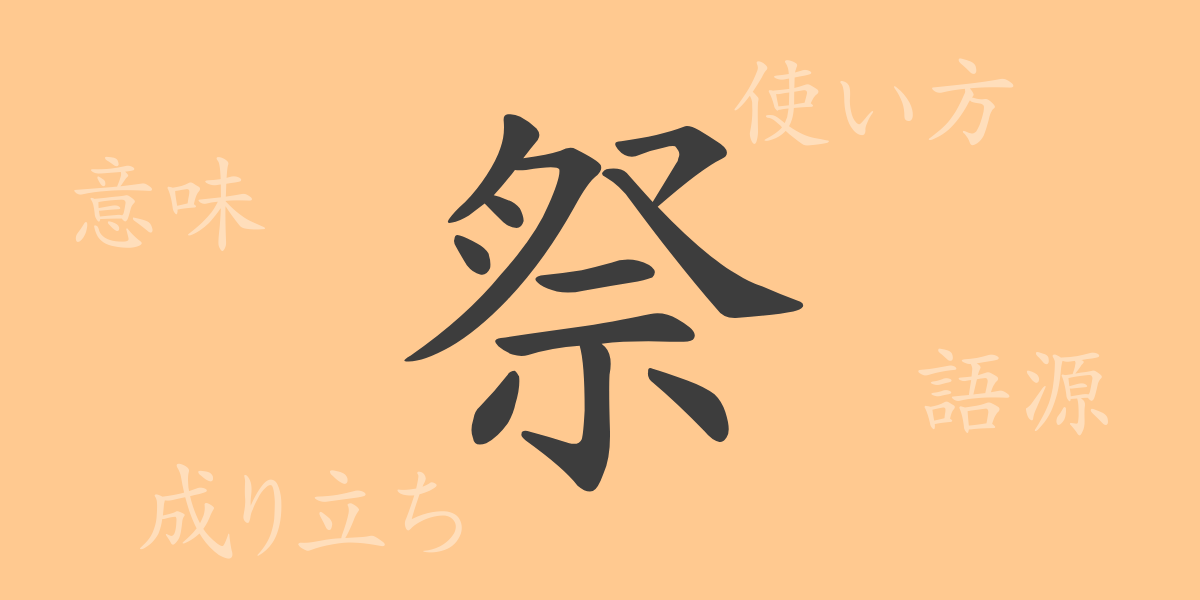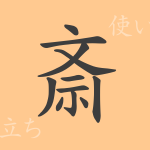The kanji “祭” (sai), deeply rooted in Japanese culture, has long been closely connected to people’s lives. From events marking the changing seasons and expressing gratitude to the gods to modern-day lively festivals, the meanings of “祭” (sai) are diverse. In this article, we explore the profound world of “祭” (sai) from its origins, meanings, and usages to its readings and the idioms and phrases in which it is used.
Etymology of 祭 (sai)
The character “祭” (sai) can trace its origins back to ancient Chinese oracle bone script. It originally developed from a pictograph meaning offerings to the gods and over time evolved into a more abstract character representing “festival” or “ceremony.” In Japan, “祭” (sai) can be seen in ancient texts such as the Kojiki and Nihon Shoki and has long been used as an important kanji representing sacred events.
Meanings and Usages of 祭 (sai)
The kanji “祭” (sai) refers to ceremonies and events held for deities, Buddha, or celebratory occasions. It also means the offerings made during these events or the act of conducting a festival itself. It is used in contexts such as “祭りを執り行う” (matsuri o toriokonau, to conduct a festival), “祭典” (saiten, festival), and “祭日” (saijitsu, festival day) to denote specific days or events.
Reading, Stroke Count, and Radical of 祭 (sai)
The kanji “祭” (sai) is one of the common-use kanji in Japan, with the following structure and readings:
- Reading: In the on’yomi reading, it is “サイ” (sai), and in the kun’yomi reading, it is “まつり” (matsuri).
- Stroke count: It consists of 11 strokes.
- Radical: The radical is 示部 (shimesu-hen).
Idioms, Phrases, and Proverbs Using 祭 (sai) and Their Meanings
There are many idioms and phrases in Japanese that include “祭” (sai), forming part of the rich tapestry of Japanese expression. For example, the idiom “祭りの後” (matsuri no ato) expresses the loneliness felt after a lively event has ended. The phrase “祭り上げる” (matsuriageru) means to enthusiastically elevate someone to a high position. These expressions are frequently used in everyday conversation and literature.
Conclusion on 祭 (sai)
The kanji “祭” (sai) holds a special meaning for the Japanese people and is seen throughout the year in various festivals and events. Its history is ancient, and its usages and idioms are deeply rooted in the Japanese language. Through this article, we hope you can appreciate the rich cultural background and linguistic value of “祭” (sai).

























